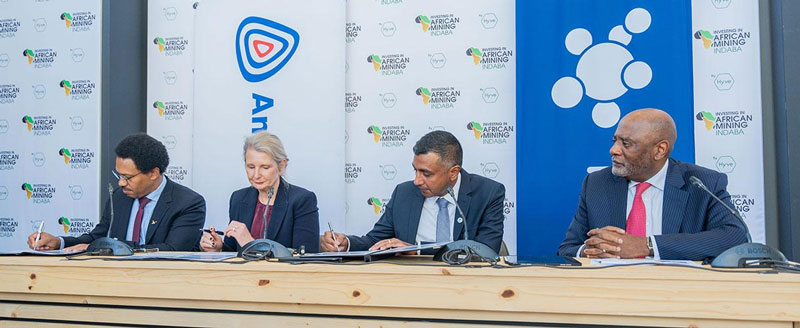Miners Sasol, Anglo American and De Beers have entered into a joint development agreement (JDA) to pilot the production of feedstock for renewable diesel.
The deal, inked during the recent Investing in African Mining Indaba conference in Cape Town, allows all three to assess the technical and commercial viability of feedstock production, starting with Solaris and Moringa plantations to generate vegetable oil. Sasol’s existing assets can take a variety of feedstocks, enabling them to produce renewable diesel using vegetable oil quicker than greenfield projects and at lower costs.
The initiative is crucial to the companies as they endeavour to establish the value chain for renewable fuels in South Africa.
“Renewable diesel is transformative. It meets the technical standards of conventional diesel while significantly reducing greenhouse gas emissions. Our customers can therefore use it as a “drop-in” fuel in their existing equipment and machinery to meet their greenhouse gas reduction commitments,” said Sarushen Pillay, executive vice president of Sasol’s Business Building, Strategy and Technology portfolio.
“Partnering with Anglo American, we’re investigating the development of a local and cost-effective supply chain for sustainable feedstock, utilising vegetable oil to produce renewable diesel in our facilities. As we innovate for a better world, Sasol’s ambition is clear – to help our customers navigate the energy transition while delivering high-quality, sustainable solutions for a low-carbon future.”
Anglo American Projects and Development Director Alison Atkinson called it an “important initiative” that will underscore its commitment to reducing its greenhouse gas emissions by 2040.
“We worked closely with our De Beers colleagues to conceive this partnership given their pre-feasibility studies on renewable diesel production trials within their mining operations and host communities. De Beers is also providing the more than 20-hectare pieces of land on which the trial feedstock will be grown, in Blouberg, Messina; Marble Hall in Limpopo; and the Voorspoed mine closure site in the Free State.”
Although renewable diesel production in South Africa is not yet at a commercial scale, recent market engagements indicate that the country’s renewable fuels market is promising, driven by end customer demands and their decarbonisation targets.
Source: Sasol

